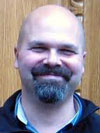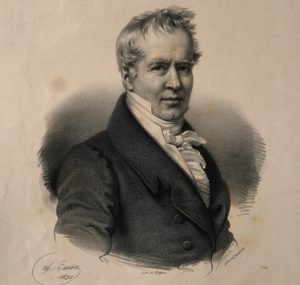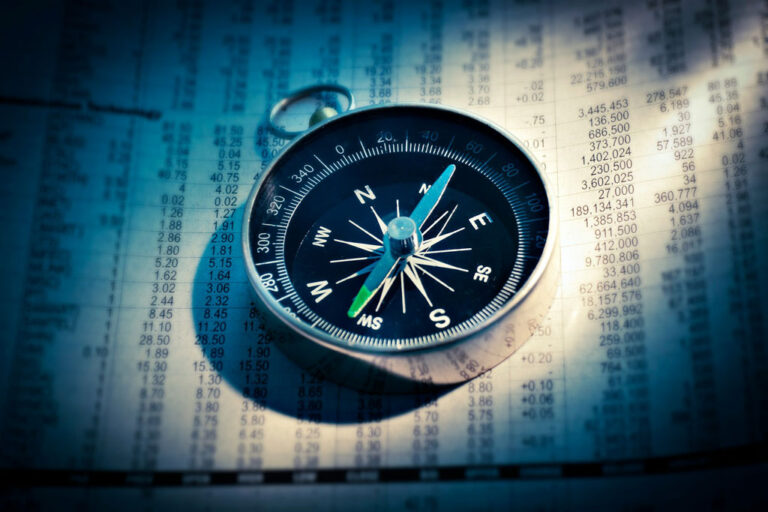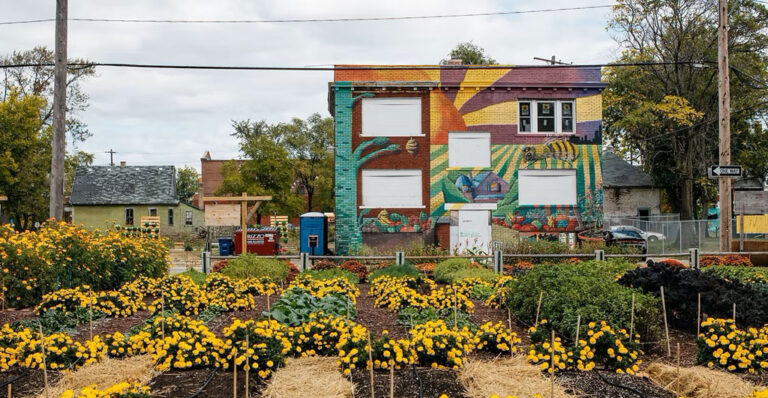Making Data Meaningful Or Geography’s Contribution to Data Science
 Geography has always been about data. After all, the field was founded and developed over the search for more and better information. It was 200 years ago that Alexander von Humboldt, perhaps the most famous geographer, acquired field observations in the Andes Mountains and used these observations to make a series of connections. In her 2015 book, The Invention of Nature, Andrea Wulf writes how Humboldt presented data he had painstakingly collected about a mountain:
Geography has always been about data. After all, the field was founded and developed over the search for more and better information. It was 200 years ago that Alexander von Humboldt, perhaps the most famous geographer, acquired field observations in the Andes Mountains and used these observations to make a series of connections. In her 2015 book, The Invention of Nature, Andrea Wulf writes how Humboldt presented data he had painstakingly collected about a mountain:
To the left and right of the mountain he placed several columns that provided related details and information. By picking a particular height of the mountain, one could trace connections across the table and the drawing of the mountain to learn about temperature, say, or humidity or atmospheric pressure, as well as what species of animals and plants could be found at different altitudes . . . All this information could then be linked to the other major mountains across the world, which were listed according to their height next to the outline of Chimborazo. (p. 103)

Data continued to power geographical quests and queries. While many nineteenth-century geographers sought to find novel information about places they encountered, geographers in the twentieth century questioned how to make sense of it. These debates focused on factors of causation, the value of regional synthesis, and the spatial variations of select data. Later—as geographers came to critically inspect the sources, meanings, and uses of information—data continues to be the engine of our discipline.
So, it was particularly disheartening to hear the governor of Florida dismiss somebody with advanced degrees in geography as not being a “data scientist.” As most of you are probably aware, this remark came as justification for the firing of Rebekah Jones, the architect and manager of Florida’s acclaimed COVID-19 dashboard, purportedly because Florida officials did not like how she was presenting the data. Sadly, this follows along some other attempts at squelching inconvenient truths, like banning the use of the term “climate change.” In justification, Governor DeSantis said that Jones “is not a data scientist” because she has a degree in geography. Whatever the reasons for terminating an employee who had previously been praised and profiled, this is a particularly low blow.
And what is “data science” anyway? The Data Science Association, which ought to know, defines it as “the scientific study of the creation, validation and transformation of data to create meaning.” Accordingly, a data scientist “can play with data, spot trends and learn truths few others know.” This sounds an awful lot like what a lot of geographers do. Of course, I don’t need to tell you about how much data creation and analysis is involved in fields such as climatology, housing analysis, land science, big data, to name just a few. The major scientific development of our field, Geographic Information Science, is built around the manipulation of locationally based data. ESRI has developed a COVID-19 GIS Hub, and geographers have been active in examining COVID-19 in light of vulnerable people, economic data, and the spaces of everyday life.
The Florida governor’s drive-by slighting is yet more evidence of geographical ignorance and insensitivity. We have a long way in correcting for the type of geographical illiteracy that relegates half the world to “sh*t-hole countries” and where many cannot locate North Korea on a map. It begins early, as most school children still lack basic proficiency in geographical concepts. This has real consequences. It causes the public to overstate certain dangers to our security while minimizing perils at our front door.
We also need to consider how we got to a place where the very essence of what we do can be so easily dismissed. The state of Florida has several fantastic geography programs: strong PhD granting departments, excellent masters, bachelors and community college programs. Yet, the lack of general knowledge about our field still disappoints. It is easy to complain about willful ignorance, but who could imagine people saying that a trained economist knows nothing about trade, or that a botanist provides no guidance on ecosystems. Yet here is where we are. The hope of the AP Human Geography explosion—especially prominent in Florida—is that it will result in a generation of people who know what geography does and why it matters. Any other steps we can take—from responding forcefully to these misstatements, to seeding geographers in public agencies and private companies—will mercifully wash away such unfortunate views.
__________
When I was elected as vice president of the AAG in February 2018, I would have never thought that my presidential term would be quite so eventful. It began auspiciously, with the hiring of our new executive director and the prospect of new horizons, and it has ended with the upending of society as the pandemic has completely restructured how we live, work, and congregate, while the murder of George Floyd exposes once again the vicious and unrelenting racism embedded in our society.
If there was a theme to my presidential year, it lay in expanding the community of geographers. We have accomplished some terrific things including more assistance to the AAG regions and the prospect of a new international councilor. Unfortunately, the pandemic prevented us from experiencing the remarkable community manifested in our annual conference. This year, we missed the chance to come together in lecture halls, meeting rooms, hotel lobbies, bars, and cafes. We lost our chance to reunite with old friends, mentors, and students, to personally tell a colleague how much you enjoyed her article, to come together and plan further projects. To commune.
Given the circumstances, we have tried to carry forward, with virtual options and laying the groundwork for a return of physical conferences in the near future. We have also developed a remarkable taskforce to address the challenges brought about by COVID-19. My final presidential communication to you, later this month, will feature the results of that taskforce.
In the meantime, I want to thank everybody who has made this year so memorable and meaningful. The past presidents, especially Glen MacDonald, Sheryl Beach, and Derek Alderman have each helped me find my footing. I look forward to working with Amy Lobben and Emily Yeh in the coming year as we continue to confront the issues of the coronavirus and the desire to move ahead. The AAG staff have been a remarkable backstop. They have all been so wonderful, but I would especially thank Candida Mannozzi, Gary Langham, Becky Pendergast, Emily Fekete, and Oscar Larson for guidance at various key points over the year. And of course, I want to thank you—for trusting me as president, for emailing me your insights, and for helping me through this unprecedented year. Never forget that the American Association of Geographers is your organization. And never forget that our strength lies in our community. May we move forward together.
— Dave Kaplan
AAG President
DOI: 10.14433/2017.0072


